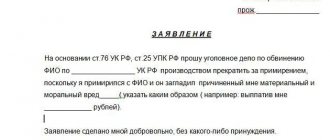According to sociological studies conducted annually in Russia, many citizens treat police officers with great distrust. There are undoubtedly quite objective reasons for such an attitude. The consequence of citizens' distrust of law enforcement officers is the so-called legal nihilism, in the ideals of which not a single generation of Russians is brought up. Nevertheless. let's figure out where to complain about police officers?
Today, the majority of our compatriots do not want to write a statement to the police if they have become the victim of a crime of minor severity that did not entail significant damage. This situation gives rise to a large percentage of latent crime. As a result, criminals feel impunity and continue their illegal activities.
Even fewer people try to protect their rights if they have become a victim of police brutality or inaction of police officers. However, Russian legislation has in its arsenal quite effective measures directed against violators in uniform, therefore, in order to be able to protect their legitimate interests if necessary, every citizen must know a clear algorithm of actions in such a situation.
Reasons for complaints against police officers
A complaint against a police officer is filed in two main situations :
- Unlawful actions on the part of an employee of internal bodies that go beyond the scope of his official powers.
- Inaction in situations where his intervention is required to restore public order.
Yulia Kalinina
Consumer Protection Lawyer
Ask me a question
The legislation clearly regards both situations described as a violation by an employee of the Ministry of Internal Affairs of his direct official duties. If such violations are detected, a citizen has the right to file a complaint against the negligent police officer with regulatory authorities.
Misconduct by a Police Officer
Each employee of the Ministry of Internal Affairs is obliged to act strictly within the limits of official authority established for him. This rule must be followed by all law enforcement officers, regardless of the specific place of duty - traffic police inspectors, district police officers, investigators, patrol officers.
Any crossing of these official boundaries is regarded as an official offense. And in some situations, abuse of power may lead not only to disciplinary action by the department, but also to the initiation of a criminal case.
Situations where a citizen can complain about the police include:
- Unreasonable use of force by police. According to the provisions of Federal Law No. 3, employees of the Ministry of Internal Affairs have the right to use physical force or special means only to protect the life, health and property of citizens, for self-defense, or to neutralize an aggressive offender. If a police officer uses force or special equipment (a baton, handcuffs, a gas canister) to punish a violator, or to assert his power over him, this is a malfeasance. Such a police officer must be held accountable in accordance with the provisions of administrative or criminal law.
- Unlawful initiation of an investigation in the absence of objective reasons for this. Such an act may be a consequence of the low professional qualifications of the police officer, or a deliberate violation. In the latter case, this is usually associated with some kind of corruption component: an attempt at extortion, putting pressure on a citizen, personal revenge for something. The illegal initiation of a criminal case is often accompanied by falsification of search results (planting of material evidence), forgery of documents, and so on. All such actions are clearly regarded by law as a criminal offense, and the police officer who committed them is obliged to answer to the fullest extent of the Criminal Code.
- Illegal document check , detention, seizure of property, personal search or search. All actions of employees of the Ministry of Internal Affairs are subject to official instructions and directives, which must be strictly observed. Violations of them serve as a reason for filing a complaint against the police with supervisory authorities. A search of the premises and seizure of property should be carried out only in the presence of a judicial (prosecutor's) warrant, and not on the personal initiative of a specific police officer. Employees of the Ministry of Internal Affairs can only enter private property with the permission of a prosecutor or judge. The exception is when there is evidence that a crime is taking place there or a dangerous criminal is hiding. Also, a police officer does not have the right to conduct a personal search of the contents of passers-by’s pockets or bags, or check their documents without a good reason, as a preventive measure “just in case.”
Inaction of a police officer
The other extreme, also considered a violation of official duties, is the unreasonable inaction of internal organs employees.
examples of this from life:
- The district police officer does not respond to requests from citizens, and does not take action against neighbors who break the law - making noise at night, leading an antisocial lifestyle, damaging common property.
- The police station duty officer refuses to accept the application on some far-fetched pretexts.
- Investigators of the Ministry of Internal Affairs unlawfully refuse to initiate a case into the commission of a crime.
- The patrol team does not respond to an emergency call received from a citizen, and is in no hurry to go to the specified address.
These are only some of the possible situations where police officers are negligent in their service. In such cases, the person whose interests have been harmed has the right to complain about the inaction of the police.
Where to go if the police do not respond to a complaint
When police officers do not want to perform their official duties efficiently, or openly ignore requests from the population, you can file a complaint with a number of supervisory authorities. Starting from the immediate superior of the negligent police officer, and ending with higher departments - the court, the prosecutor's office and even the Presidential Administration. There are also several ways to submit: during a personal visit, on the official website, by telephone hotline, or by registered mail.
Police
The very first authority to which you can file a complaint about unlawful actions of a police officer or his inaction is his immediate superiors.
To do this, you need to visit the head of the department during office hours and personally submit a claim. It is also possible to send the paper by registered mail, with notification of delivery to the addressee.
If this does not help resolve the issue, then you need to contact higher management. You can also leave a request on the official website of the Ministry of Internal Affairs of the Russian Federation. In many regions of the country, the territorial divisions of the ministry have their own Internet portals, which accept applications from the population.
Another option for filing a complaint remotely is to call hotline : 8 (800) 222-74-47 .
Calls are free for all subscribers and are accepted 24 hours a day. The operator registers the received claim and forwards it to the appropriate service of the Ministry of Internal Affairs.
Prosecutor's office
Article 52 of Federal Law No. 3 states that the prosecutor's office is the main body supervising the work of the police and compliance by its employees with Russian legislation. If employees of the Ministry of Internal Affairs violate the law, the prosecutor is obliged to issue an order to eliminate it. If the detected violation is of a serious nature, at the request of the prosecutor's office, administrative or criminal proceedings are initiated against the police officer.
Yulia Kalinina
Consumer Protection Lawyer
Ask me a question
Every citizen who has suffered from the arbitrariness or inaction of internal officials can file a complaint against the police with the prosecutor's office. Upon receipt of a complaint, an investigation is carried out, and if violations are detected, the perpetrators are held accountable depending on the severity of the offense - disciplinary, administrative or criminal.
Court
The judiciary is one of the highest authorities that people turn to when it is not possible to resolve the conflict by other means. After receiving the statement of claim, legal proceedings begin. Its initiators can be both the victim himself and supervisory authorities - the prosecutor's office, the internal security service under the Ministry of Internal Affairs.
The claim should state the circumstances of the problem and specific requirements: bring the violator to justice, issue a court order to eliminate the violations, and seek compensation for the material (moral) damage caused.
CSS
The Department of Internal Security is a special police unit responsible for identifying and suppressing crimes among department employees.
This authority accepts appeals relating only to serious offenses by employees of the Ministry of Internal Affairs that fall under the scope of the Criminal Code of the Russian Federation - torture, corruption, extortion, falsification of cases, and the like.
Minor offenses, such as illegal checking of documents on the street, or refusal to accept an application, will not be considered by the CSS.
HRC under the President
The Human Rights Council is a special body whose purpose is to oversee compliance with constitutional norms and protect the civil rights of the population. A complaint is submitted to the public reception of the Council in case of serious violations of the rights of citizens by government officials, including employees of law enforcement agencies.
You can file a complaint against the police:
- By calling the HRC hotline: 8 (495) 606-48-55;
- By sending the paper by registered mail to the address: 103132, Moscow, Staraya Square, building No. 4 .
After considering the received appeal, the HRC forwards it to the department responsible for this area of violations - the Internal Security Service, the prosecutor's office, the courts.
Public Council under the Ministry of Internal Affairs
This non-governmental body was created under the Ministry to assist in monitoring compliance with the rule of law and the rights of citizens by police officers. He is the link between the population and local authorities on the one hand, and the police on the other.
You can contact the Council:
- Through the official website of the organization.
- Toll free hotline 8 (800) 250-85-02.
- Send a written complaint to the regional department of the Council, or to the head office at the address: 117342, Moscow, post office box 35 .
President of the Russian Federation
The highest authority to which a Russian can complain about unlawful actions of police officers is personally to the President of the country. At first glance, the resolution of a conflict that has arisen between an individual citizen and a police officer does not correspond to the level of the head of state. But, oddly enough, such appeals are quite effective.
Officials of the Ministry of Internal Affairs or supervisory departments, having received an order from the Presidential Administration to look into the problem presented, very quickly carry out the order.
On the website of the Office of the Presidential Administration for processing applications, you can file a complaint about violations by officials of any government departments. Upon consideration of the complaint, it is redirected to the necessary authorities with a requirement to understand the essence of the problem.
Commissioner for Human Rights
The position of the Civil Rights Ombudsman was introduced in the country relatively recently, but has already shown its effectiveness.
The scope of the commissioner's activities includes oversight of compliance with constitutional rights and freedoms. When a complaint is received, the authorized person personally, or members of his staff, consider it, if necessary, sending official requests to various authorities.
When violations of a citizen’s rights are identified, the Ombudsman takes all necessary efforts to restore them, involving the judiciary, the prosecutor’s office and other departments. Each region has its own commissioner appointed by the local parliament.
You can submit a complaint to the central office of the Commissioners for Human Rights on the official website of the Commissioner for Human Rights in the Russian Federation.
Responsibility
If residents of an apartment building violate the silence regime, they face administrative liability, in accordance with the regulations of a particular region. The time after which you cannot make noise and the amount of the fine are established in each region separately. Find your region here ().
If neighbors do not comply with noise regulations, before making an anonymous call to the police, it is worth talking to them and reminding them of the punishment for such behavior. The average fine in the Russian Federation is from 500 to 2000 rubles.
We recommend reading: “All neighbors are bad, but the ones above are worse than the ones below” or how to punish the neighbor above for constant stomping.
But if an anonymous call to the police does not confirm the fact of a violation, neighbors can file a counterclaim for slander, under Art. 128.1 of the Criminal Code of the Russian Federation.
Learn more about legal methods of dealing with noisy neighbors in the article “How to make noise “correctly” in an apartment: norms and possible punishments.”
How to file a complaint against a police officer. Sample
A complaint against a police officer is drawn up in free form , but must comply with basic standards of legal paperwork. The document must indicate the details of the offending police officer, or the unit in which he serves, information about the applicant (full name, residential address, contact telephone number). Next, the essence of the problem that has arisen is clearly described, without excesses, and a requirement is put forward to the supervisory authority to bring the violator to justice. At the end, the date of compilation and the personal signature of the applicant are affixed.
Deadlines for consideration of applications
All citizen complaints received by supervisory authorities are considered in accordance with the provisions of Federal Law No. 59 “on citizens’ appeals.”
For government departments this period is :
- 10 days to consider the received request:
- 30 days – to verify the facts stated in the complaint and take measures if they are confirmed.
What information should you provide when contacting the police?
According to Chapter IV of Order No. 707 of the Ministry of Internal Affairs of Russia, in order to call the police on noisy neighbors you need to call:
- Full name;
- email address for sending a response or notification of forwarding of the application.
If you do not provide this information, the police may ignore the application.
If this is a written appeal, you can attach evidence of violation of your right to peace: audio/video recordings, testimony of witnesses. Of course, anonymity in this case will be violated, but the chances of having the case considered will increase.





